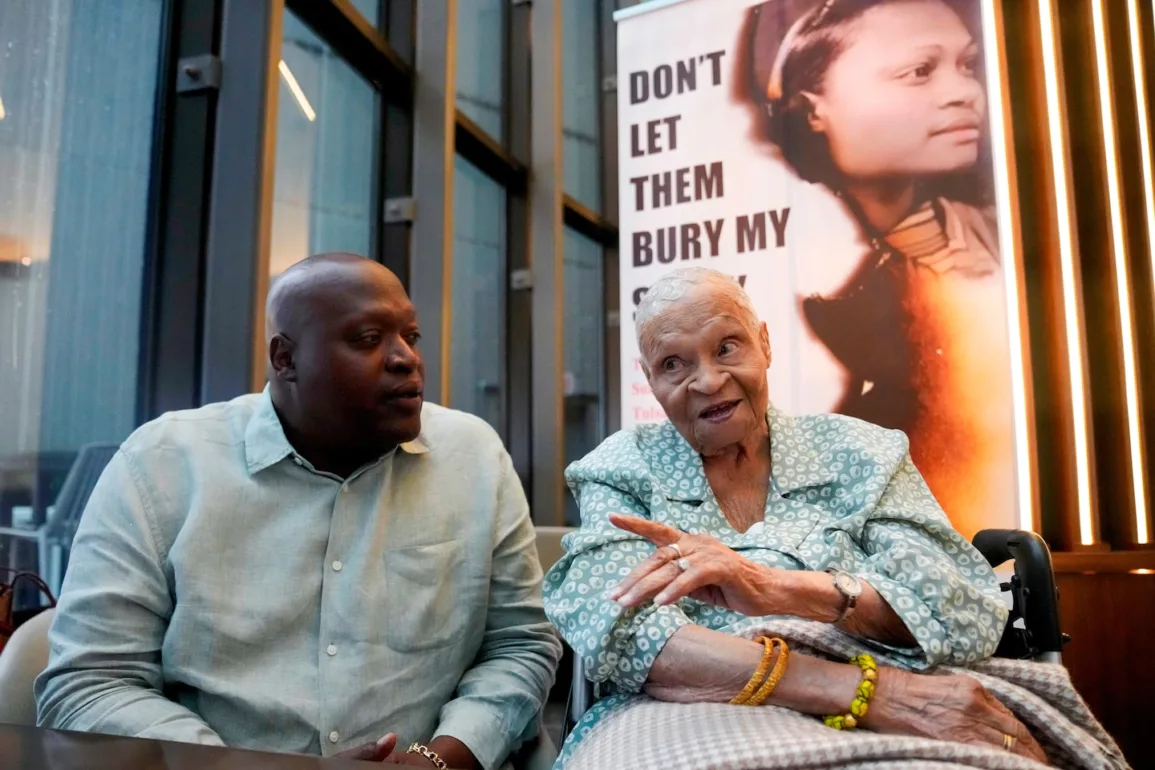An Oklahoma judge threw out a lawsuit Friday that sought reparations for victims and descendants of the 1921 Tulsa race massacre, thwarting efforts by local advocates to seek justice for the attack’s last three living survivors and Black Tulsa residents at large.
Tulsa County District Court Judge Caroline Wall dismissed the case in a written order after reviewing complaints from the city, the regional Chamber of Commerce and other local agencies. They argued the plaintiffs’ request to compensate residents for the destruction of the prominent Black neighborhood would impose a significant burden on the government’s financial stability.
Originally filed in 2020 under an Oklahoma public nuisance law, the lawsuit argued that large swaths of Tulsa’s Black community still suffer from the damage brought on by the massacre nearly a century afterward.
The lawsuit demanded a detailed accounting of the property and wealth lost or stolen in the attack, the construction of a hospital in north Tulsa and the creation of a Tulsa Massacre Victims Compensation Fund.
Sara Solfanelli, one of the attorneys representing the survivors, told The Washington Post that her legal team intends to appeal Wall’s decision.
“Black Americans, especially Black Tulsans, carry the weight of intergenerational racial trauma day in and day out—a weight they cannot relinquish or cavalierly dismiss,” Solfanelli said in a statement. “The dismissal of this case is just one more example of how America’s, including Tulsa’s, legacy is disproportionately and unjustly borne by the Black community.”
In their motion to dismiss, lawyers for the state argued that the government “cannot be held liable for civil disobedience, riot, insurrection or rebellion or the failure to provide, providing police, law enforcement or fire protection.”
Tulsa’s decades-long history with racial division is bound to the 1921 massacre in which an angry White mob descended on the 35-block Greenwood district, home to most of Tulsa’s 10,000 Black residents. Over one night, attackers burned and looted homes in the area, killing hundreds of Black residents, destroying local businesses and taking valuable goods, according to a 2001 state commission report. Multiple personal property cases after the massacre were also dismissed in 1937.
The lawsuit’s plaintiffs, Lessie Benningfield, Viola Fletcher and Hughes Van Ellis, are the last known survivors of the 1921 events. Their attorneys argued that the massacre contributed to generations of economic instability for the city’s Black community. Though many Black families fled Tulsa after the attack, those who remained were never compensated for their losses.
Last year, when attempting to have the suit dismissed, Chamber of Commerce attorney John Tucker said the massacre was horrible, but the public nuisance is not ongoing, the Associated Press reported at the time. “What happened in 1921 was a really bad deal, and those people did not get a fair shake … but that was 100 years ago,” Tucker told the AP.
Solfanelli argued that Wall’s dismissal order Friday “backpedaled” on her previous decision in 2022 that allowed the case to proceed.
“Inexplicably, nearly one year after defendants filed another round of duplicative motions to dismiss the lawsuit and more than 2.5 years after the case was filed, Judge Wall threw the entire case out,” Solfanelli said in her statement.
Tulsa Mayor G.T. Bynum (R) told The Post that he has not yet received the opinion and full order in the case but was aware of the decision.
“The City remains committed to finding the graves of 1921 Tulsa Race Massacre victims, fostering economic investment in the Greenwood District, educating future generations about the worst event in our community’s history, and building a city where every person has an equal opportunity for a great life,” Bynum said in a statement.
In 2021, Bynum issued a statement on the 100-year anniversary of the massacre apologizing on behalf of the city. Bynum said at the time he was in favor of moves to address the wrongs but opposed reparation payments directly from municipal coffers, according to Public Radio Tulsa.
“There’s one thing that I’ve been clear I’m opposed to, which is a lawsuit settlement where we levy a property tax on everybody in Tulsa and pay reparations from that,” Bynum told the radio station. “I mean, you would literally be levying taxes on the descendants of victims to pay that, and you’d be financially punishing people in Tulsa that didn’t do anything wrong, and so I don’t support that.”


